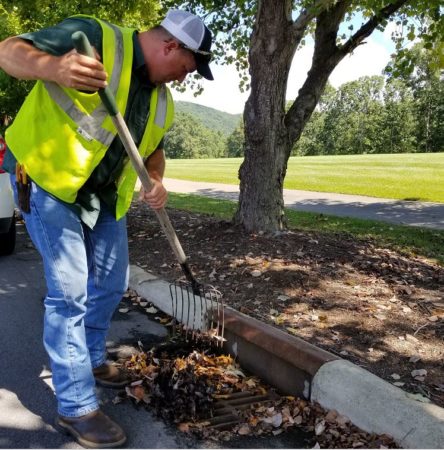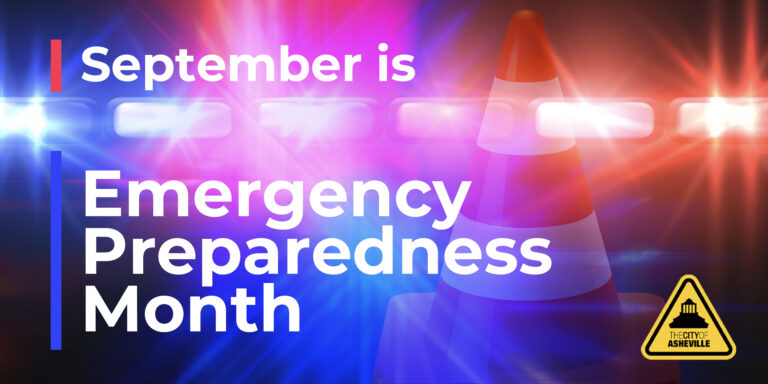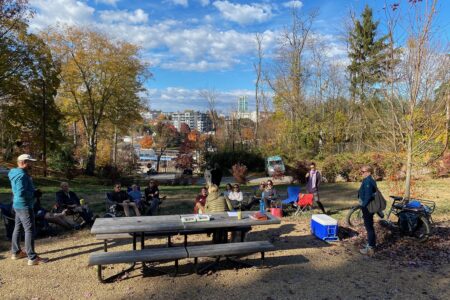As changes in climate continue to impact our local weather patterns, the Asheville region expects more frequent and more intense weather events. There are actions we can take individually and as a community that will help build our resilience during emergency events and that will also support in “blue skies” times.
Blue-skies actions, meaning the good work we can put in while the sun shines, the lights are on and things are running smoothly, help build cohesive, resilient communities. Blue skies community-building activities can also create critical social networks that will enable us to respond when facing climate disasters as we care for our neighbors, activate unique area strengths and work together to bounce back from inevitable disruptions.
Some examples of blue skies community-building activities include:
- Hosting a neighborhood potluck or climate conversation.

Oakhurst neighbors gather for community conversation. - Getting to know neighbors and connecting vulnerable community members with support systems (i.e. who needs refrigerated medicine, who has a generator or backup solar battery that could support refrigeration during a power outage?)
- Plan a block party or sponsor a lemonade stand!
While building community cohesion and neighborhood relationships is one way to activate in blue skies, household and personal behavior actions can also be impactful.
In Asheville our primary climate risks are flooding, wildfires, landslides and extreme temperatures which often result in power outages. In your household you can take a few simple steps to help lessen the impact of these events. Here are some examples of regular maintenance activities that can increase your household resilience and stem the tide of a changing climate:

- Regularly clean your storm drains and gutters to keep flood waters flowing in the system.
- Clear dry debris from near your household or propane/fuel tanks to reduce wildfire risk.
- Install slope-stabilizing plantings on steep embankments to help prevent erosion.
- Keep shelf stable food and water on hand to stay fed and hydrated for 72 hours.
- Reduce your energy consumption through simple activities like air drying your clothes or weatherizing your household.
Through blue skies community and household actions alongside comprehensive City led emergency response systems, Asheville can improve our baseline for connection and preparedness to lessen impacts from climate risks, ensure a swifter recovery, and rebuild from disruption quickly and efficiently.
Do you know the climate risks in your neighborhood? Use the Climate Justice Data Map and search by address to learn about neighborhood Climate Justice Scores and the many factors impacting our community’s capacity for mitigation, adaptation, and resilience. #TogetherWeThrive
Elevate AVL, a community led, City-supported initiative, seeks to support neighborhood connections and climate conversations while providing accessible action ideas for increasing individual, household and community resilience.

